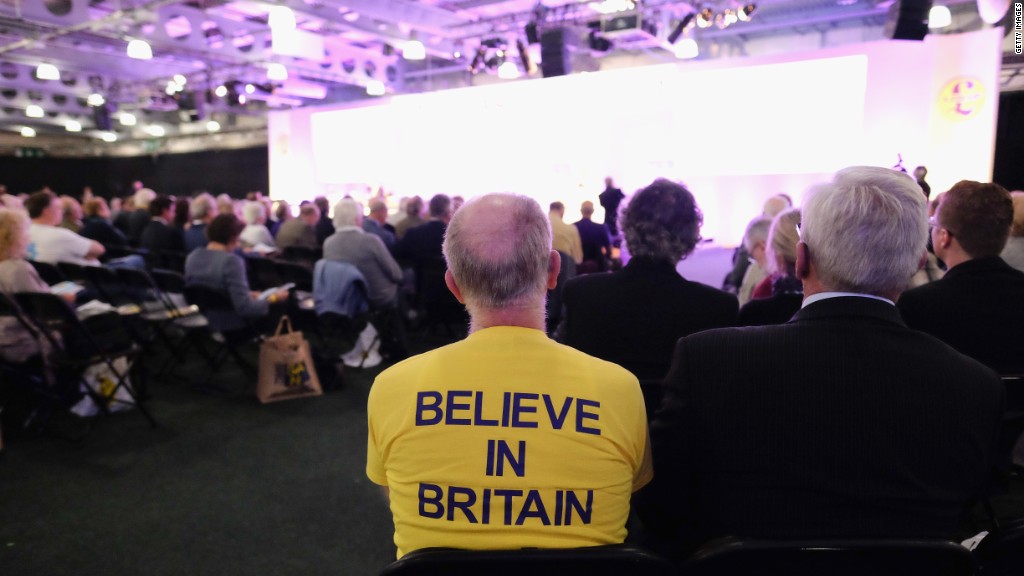
A group of economists has just made a bold claim: President Obama, the International Monetary Fund and just about every big Wall Street bank have got their sums wrong about Britain's prospects if it exits the European Union.
Rather than hitting trade and slowing growth, a so-called Brexit would boost the U.K. economy by 4%, the group of eight independent economists said Thursday.
They include Roger Bootle, a former chief economist at HSBC (HSBC) and founder of Capital Economics, and Gerard Lyons, chief economic adviser to Boris Johnson, the London mayor who is campaigning for Brexit.
But their view is something of a minority report. Government finance experts, the Bank of England, the IMF and many forecasters working for banks and other institutions, say Brexit would cause an immediate shock, followed by a weaker trajectory for growth in the long term.
The Organisation for Economic Cooperation and Development joined the chorus this week, predicting that U.K. GDP would be 3% lower by 2020 than if the country remains in the 28-country bloc. The IMF has warned that Brexit would be "negative on all fronts."
In fact, there's evidence that the uncertainty surrounding the result of the June 23 referendum is already hurting the economy.
Related: Obama warns against Brexit
The impact on trade is at the center of the economic arguments over what would happen if the British people vote to leave the EU.
Those opposing Brexit say trade would suffer because the U.K. would lose access to Europe's single market, and would have to negotiate new trade deals -- a lengthy process with an uncertain outcome.
But the pro-Brexit economists said Thursday the U.K. could do without free trade agreements. They say the country could rely on World Trade Organization rules that govern the international flow of goods.
They argue that leaving the EU may actually boost trade, because protectionist regulations inflate prices of manufacturing and agriculture inside the bloc, and make the U.K. less competitive. Removing these barriers would push consumer prices down 8%, they said.
However, a government analysis says this scenario would be highly damaging to the U.K. economy. Officials estimate GDP would be about 7.5% smaller after 15 years than it would have been.
The future of London's financial center is also under spotlight. Several big banks, including HSBC, have warned they could move some of their business away from the U.K. in the event of Brexit.
A study by PriceWaterhouseCoopers said dropping out of the EU could cost Britain's financial sector as many as 100,000 jobs in the coming years.
But the pro-Brexit economists dismiss these warnings.
"2.2 million people work in the financial services industry and the infrastructure associated with that is not easily replicated ... London leads globally, with no major European competition," they said.
They say leaving the bloc would give the U.K. better control over financial regulation, which is now decided in Brussels.


